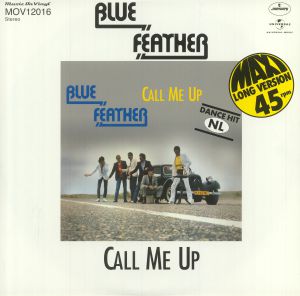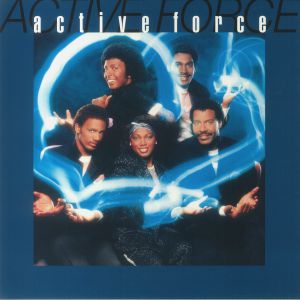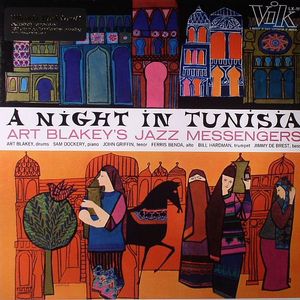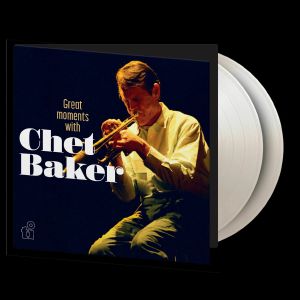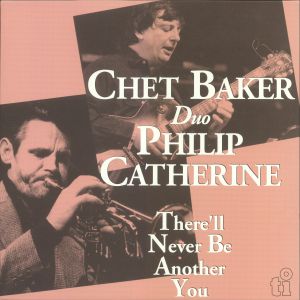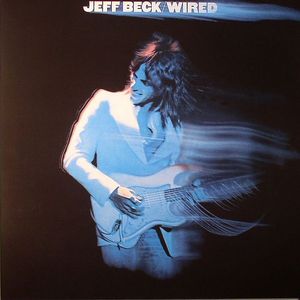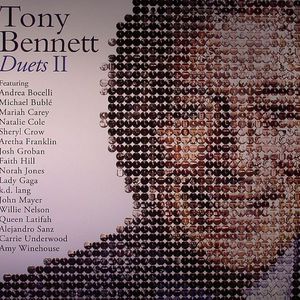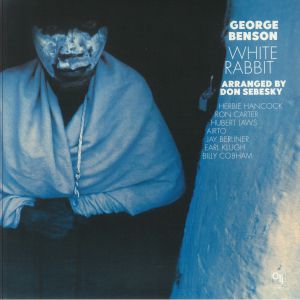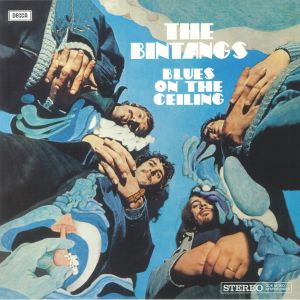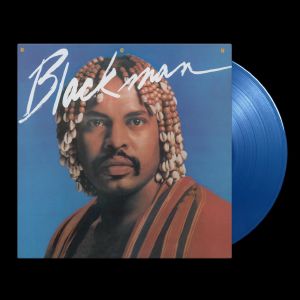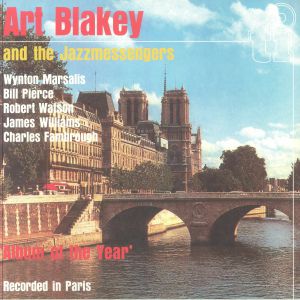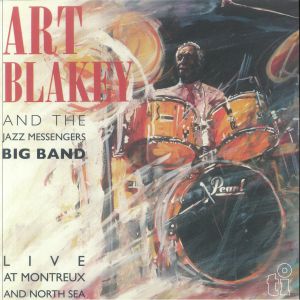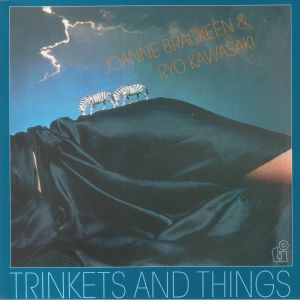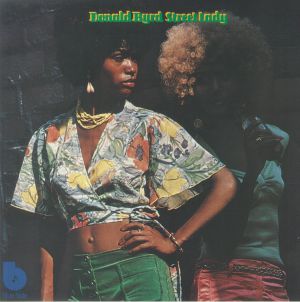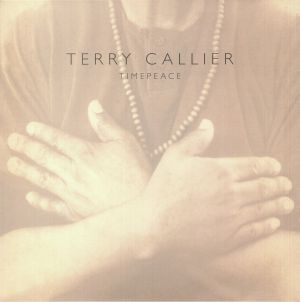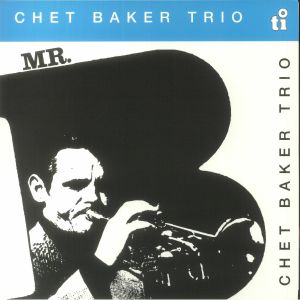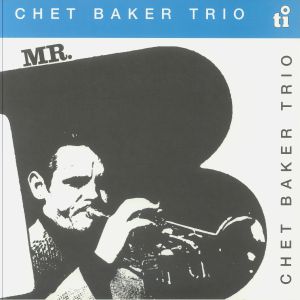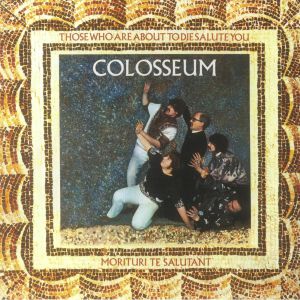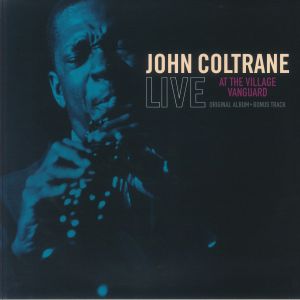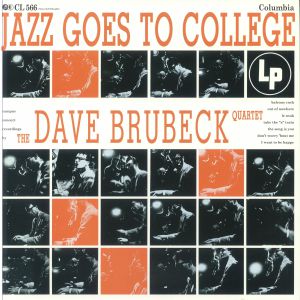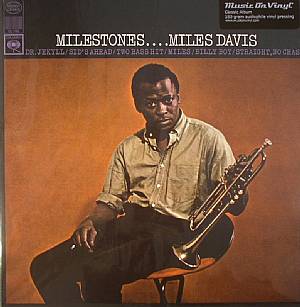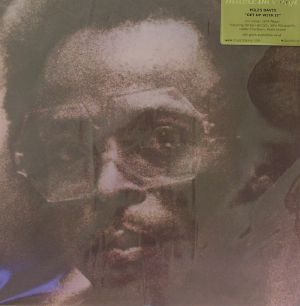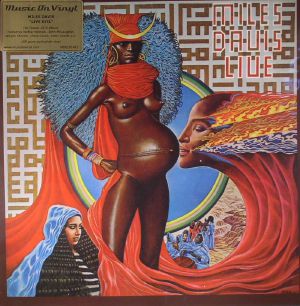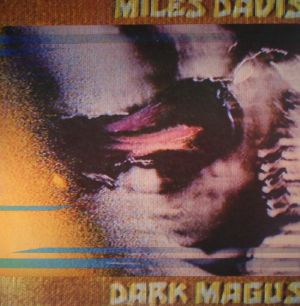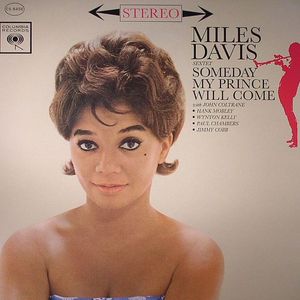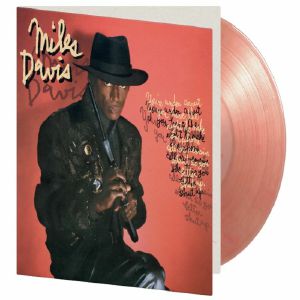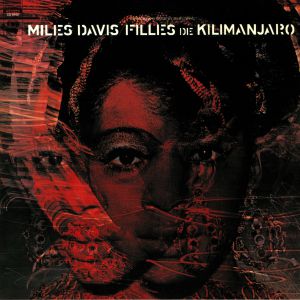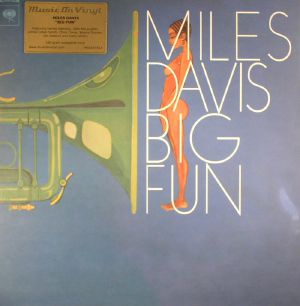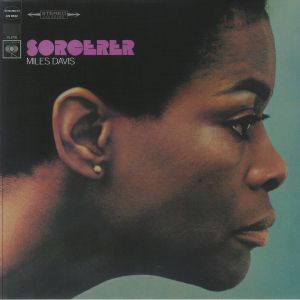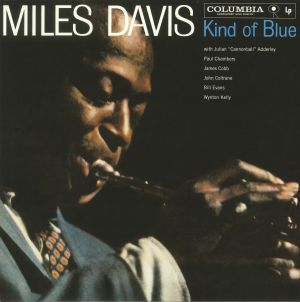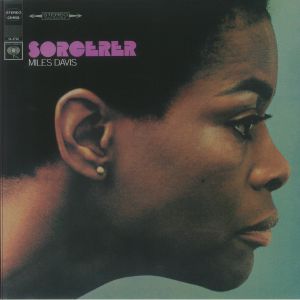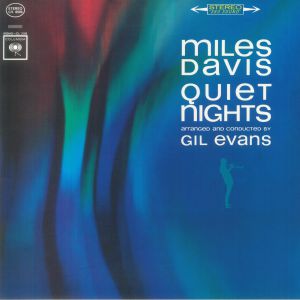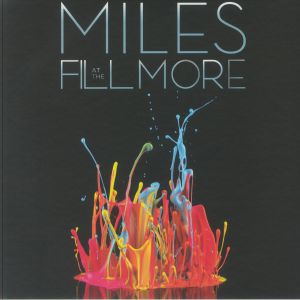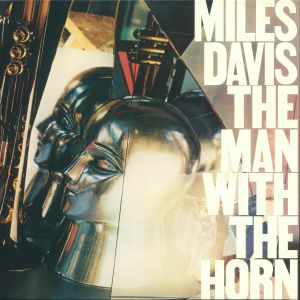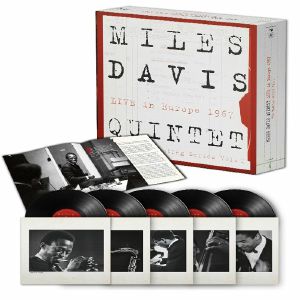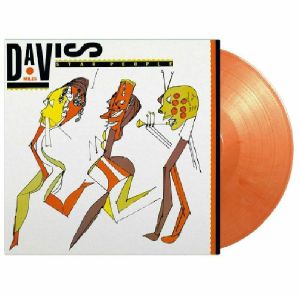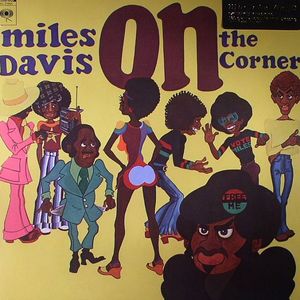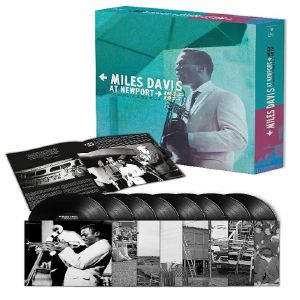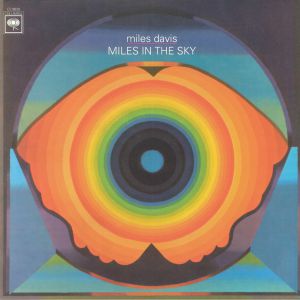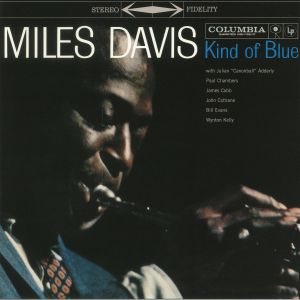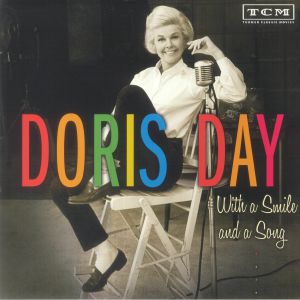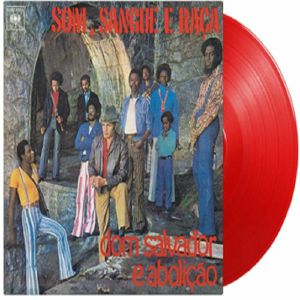Filter
在庫状況
Type
Release Date
アーティスト
Featured
リリースタイトル
値段
タグ
Back catalogue: Funk Soul & Jazz
Juno's full catalogue of Funk Soul & Jazz
シングル
Call Me Up (40th Anniversary Edition) (Record Store Day RSD 2021) (limited numbered 180 gram audiophile blue vinyl 12")
Cat: MOV 12016C. Rel: 28 Jul 21
in stock $6.03
Fast Freddie The Roller Disco King (Record Store Day RSD Black Friday 2022) (limited numbered 180 gram translucent yellow vinyl 12" (indie exclusive))
Cat: MOV 12069. Rel: 02 Dec 22
Review: The backstory to this one is great. It starts in 1978 when a New York producer was in need of some studio musicians to lay down some fast and funky rhythms for a band he was working with, The Imperials. Minneapolis talents Andre Cymone and Prince Rogers Nelson duly stepped up and recorded 'Fast Freddy The Roller Disco King'. An album from the Imperials was set to follow but it never did, leaving us with this one majestic cut. It's soul-drenched and cosmic disco with a killer vocal back with a more leggy and slow-motion cosmic wonder, 'I Just Wanna Be Your Lovin' Man.'
… Read morePlayed by: Charlie bucket/ dancing in space
in stock $10.43
アルバム
Active Force (180 gram audiophile vinyl LP)
Cat: MOVLP 3418. Rel: 11 May 23
Played by: Juno Recommends Funk
in stock $29.09
A Night In Tunisia (remastered) (180 gram vinyl LP)
Cat: MOVLP 514. Rel: 25 Mar 13
Played by: Juno Recommends Jazz
in stock $23.33
At This Time (20th Anniversary Edition) (limited numbered 180 gram audiophile clear vinyl LP + insert)
Cat: MOVLP 3801C. Rel: 07 May 25
in stock $31.83
Played by: Juno Recommends Jazz
in stock $30.20
Great Moments With (limited numbered gatefold 180 gram audiophile white vinyl 2xLP)
Cat: MOVLP 3857C. Rel: 02 Dec 24
in stock $36.78
Cool Cat (reissue) (180 gram audiophile vinyl LP)
Cat: MOVLP 3274. Rel: 08 Aug 24
in stock $27.18
There'll Never Be Another You (reissue) (180 gram audiophile vinyl LP)
Cat: MOVLP 3743. Rel: 25 Jun 24
Review: There'll Never Be Another You, recorded live in Zagreb, Croatia, in 1985, features Chet Baker on trumpet, piano, and vocals, accompanied by guitarist Philip Catherine. This album captures the essence of Baker's intimate, melancholic style, showcasing his talent across four duos. The duo's chemistry shines through on tracks like 'Beatrice,' 'Leaving,' and the title track, 'There'll Never Be Another You.' Catherine's guitar complements Baker's performance beautifully, adding depth and texture to the music. Now available on vinyl for the first time!
… Read more in stock $33.49
La Cuna (reissue) (limited 180 gram audiophile red vinyl LP)
Cat: MOVLP 3633C. Rel: 22 Oct 24
in stock $30.74
in stock $29.92
Played by: Juno Recommends Jazz
in stock $37.32
White Rabbit (reissue) (limited numbered gatefold 180 gram audiophile white vinyl LP)
Cat: MOVLP 213C. Rel: 08 Aug 24
Review: George Benson remains a towering figure in the American r&b and soul landscape. His many albums are firmly part of the canon of greats and White Rabbit is right up there. It now gets reissued on limited and numbered gatefold 180-gram audiophile white vinyl after being originally released in 1971. The album showcases Benson's exceptional guitar skills and distinctive vocal style with gems like 'White Rabbit' and 'The Greatest Love of All' effortlessly blending jazz, funk, and soul with Benson's signature smoothness. The high-quality pressing and crisp sound make it a standout on vinyl and remind that as well as the catchy and loved-up hist, Benson had some serious jazz chops.
… Read more in stock $36.78
Blues On The Ceiling (reissue) (limited numbered 180 gram audiophile gold vinyl LP)
Cat: MOVLP 1737C. Rel: 23 Jun 22
in stock $29.63
Travelling In The USA (reissue) (limited numbered 180 gram audiophile white vinyl LP)
Cat: MOVLP 1736C. Rel: 23 Jun 22
in stock $27.44
Don Blackman (reissue) (limited 180 gram audiophile blue vinyl LP)
Cat: MOVLP 3639C. Rel: 22 Oct 24
Review: Don Blackman's self-titled debut album, released in 1982, stands as a testament to his versatility as a musician, blending jazz-fusion, funk, and r&b with a distinct creative vision. Though it may not have made waves on the charts, its legacy has only grown with time, cementing it as a cult classic in the 80s jazz-funk landscape. Blackman, a skilled keyboardist and vocalist, had already built a name through collaborations with heavyweights like Parliament-Funkadelic and Roy Ayers, but his debut marked a bold foray into the spotlight. The album itself feels like a rich, meticulously crafted groove machine, where Blackman's keyboard wizardry is matched by his soulful vocal delivery. Tracks like 'Heart's Desire' and 'Holding You, Loving You' highlight his knack for catchy melodies, while 'Yabba Dabba Doo' leans into playful funk, embodying the joyous experimentation that permeates the record. Each song brims with tight, polished arrangements, grounded by smooth basslines and Blackman's ability to switch between genres effortlessly. What makes this album so significant is its impact on future generations. While not an immediate commercial hit, it's become a goldmine for hip-hop producers, with many of its tracks being sampled by major artists, pulling it from obscurity into a cherished underground classic. In an era when funk and jazz were evolving, Blackman's debut was - and remains - an unsung yet influential piece of music history, offering a snapshot of an artist at the peak of his creative powers, melding diverse sounds with a rare sophistication.
… Read more in stock $32.38
Album Of The Year (reissue) (180 gram audiophile vinyl LP)
Cat: MOVLP 3861. Rel: 07 Jan 25
Review: This 1981 jazz masterpiece showcases a remarkable ensemble performance, capturing the essence of both tradition and innovation. The album features a young, vibrant lineup, with standout contributions from trumpet, saxophone and piano, each player bringing a unique voice to the compositions. The interplay between the musicians is seamless, with the rhythm section providing a dynamic and supportive foundation, while the horns soar with bold, searing solos. The compositions are varied, with mid to up-tempo tracks that never feel repetitive, driven by intricate arrangements and vibrant melodies. The drumming is particularly exceptional, with complex rhythms that weave in offbeat syncopations and ghost notes, adding an extra layer of excitement to every track. The cohesion of the ensemble is palpable, as each player seems in tune with one another, creating a sense of unity that elevates the music. The solos are both lyrical and energetic, with moments of searching intensity that reflect the band's deep understanding of jazz language. While it's an updated take on the modern jazz sound, the album maintains the urgency and spontaneity of the genre's golden age.
… Read more in stock $34.03
Live At Montreux & North Sea Jazz Festivals (180 gram audiophile vinyl LP)
Cat: MOVLP 3791. Rel: 02 Jul 24
in stock $23.89
Trinkets & Things (reissue) (limited numbered 180 gram audiophile turquoise vinyl LP)
Cat: MOVLP 3267. Rel: 21 Feb 23
Review: The 1978 collaborative project between American jazz pianist Joanne Brackeen and Japanese jazz fusion guitarist Ryo Kawasaki was a duet studio album that showed Brackeen in a new light, brought out by who can only be described as the master of jazz fusion. The keys feel light, whimsical and less precise than Brackeen's previous outings, 'Trinkets & Things' being more free-flowing and resulting in an exciting sound well deserved of a limited audiophile re-release for its upcoming 45th birthday, on heavyweight and numbered vinyl. This will be remembered as one of the best jazz pressings of the year.
… Read more in stock $15.36
Street Lady (reissue) (gatefold 180 gram audiophile vinyl LP)
Cat: MOVLP 3396. Rel: 28 Mar 23
Review: Donald Byrd's Street Lady was released originally in 1973, and at that point the American great had already penned some 20 odd albums. But the 70s marked his move into the funkier side of things and to this day, this album remains one of his most widely loved and important. It's a rich source of samples for a wide range of artists and the opening tune was used smartly by Detroit great Theo Parrish, while tunes like 'Miss Kane' and 'Sister Love' are still huge. Street Lady is as iconic now as it was back first time around with the same going for the experimental sounds of 'Witch Hunt, while 'Woman Of The World' ends on a gentle, euphoric stride.
… Read morePlayed by: Craig Charles Funk And Soul, Juno Recommends Jazz
in stock $31.01
Timepeace (25th Anniversary Edition) (180 gram audiophile vinyl LP + insert)
Cat: MOVLP 3357. Rel: 04 May 23
Review: It's now a quarter of a century since Terry Callier released his Timepeace album, which was his first after a 15 year break. The record won the United Nations's Time For Peace award for outstanding artistic achievement and for "contributing to world peace." It features standout tunes like 'People Get Ready' and 'Brotherly Love' composed by Curtis Mayfield, as well as a guest spot from Pharoah Sanders on tenor-saxophone on the title song 'Timepeace' and seven other wondrous tunes that showcase soul, jazz, folk influences. This reissue includes an insert with lyrics and liner-notes by Tom Terrell.
… Read morePlayed by: ISOUL8 (Volcov), Juno Recommends Soul
in stock $30.47
Mr B (limited 180 gram audiophile translucent red vinyl LP)
Cat: MOVLP 3268C. Rel: 03 May 23
in stock $32.12
Mr B (40th Anniversary Edition) (limited 180 gram audiophile translucent blue vinyl LP)
Cat: MOVLP 3268T. Rel: 08 Aug 24
in stock $33.21
Those Who Are About To Die Salute You (limited hand-numbered 180 gram audiophile gold vinyl LP + insert)
Cat: MOVLP 1684G. Rel: 04 May 23
Played by: Juno Recommends Jazz
in stock $33.21
Live At The Village Vanguard (remastered) (limited 180 gram audiophile purple & red marbled vinyl LP)
Cat: 87190 39006854. Rel: 04 Oct 24
in stock $18.39
Jazz Goes To College (180 gram audiophie vinyl LP)
Cat: MOVLP 1520B. Rel: 02 Jul 24
in stock $31.83
Milestones (reissue) (180 gram audiophile vinyl LP)
Cat: MOVLP 983. Rel: 21 Feb 14
Played by: Juno Recommends Jazz
in stock $28.54
Get Up With It (gatefold 180 gram audiophile vinyl 2xLP)
Cat: MOVLP 1513. Rel: 08 Feb 16
in stock $40.90
Live Evil (gatefold 180 gram audiophile vinyl 2xLP)
Cat: MOVLP 1483. Rel: 18 Mar 16
in stock $35.41
Dark Magus (remastered) (gatefold 180 gram audiophile vinyl 2xLP)
Cat: MOVLP 1454. Rel: 17 May 16
Played by: Juno Recommends Jazz
in stock $35.12
Someday My Prince Will Come (stereo) (180 gram vinyl LP)
Cat: MOVLP 494. Rel: 05 Jul 12
in stock $23.15
You're Under Arrest (reissue) (limited numbered gatefold 180 gram audiophile red & clear marbled vinyl LP)
Cat: MOVLP 3823C. Rel: 29 Oct 24
in stock $25.53
Agharta (gatefold 180 gram audiophile vinyl 2xLP)
Cat: MOVLP 134. Rel: 11 Nov 15
Played by: The Jazz Meet
in stock $35.12
Filles De Kilimanjaro (reissue) (180 gram audiophile vinyl LP)
Cat: MOVLP 2384. Rel: 26 Jun 19
Played by: Juno Recommends Jazz
in stock $29.92
Big Fun (gatefold 180 gram audiophile vinyl 2xLP)
Cat: MOVLP 1514. Rel: 01 Sep 16
in stock $34.86
Sorcerer (reissue) (limited numbered 180 gram audiophile clear vinyl LP)
Cat: MOVLP 1865T. Rel: 13 Feb 24
Review: In a discography that is jam packed with high quality albums, Miles Davis's Sorcerer is one of the standouts. Now newly reissued by Music on Vinyl, it transports listeners into the heart of 1967's avant-garde jazz landscape when it was originally released as part of Davis's Second Great Quintet era. The music showcases the maestro's pioneering fusion of modal jazz and free improvisation from the enigmatic title track to the haunting Prince of Darkness. Davis and his ensemble craft a sonic tapestry that mesmerises with every note here and Wayne Shorter's evocative saxophone, Herbie Hancock's masterful piano, and Tony Williams's dynamic drumming all help make that so.
… Read more in stock $30.74
in stock $32.38
Sorcerer (reissue) (180 gram audiophile vinyl LP)
Cat: MOVL 6203247. Rel: 01 Jan 90
in stock $28.83
Review: 1977's Quiet Nights is one of legendary American jazz figure Mile Davis' lesser known albums. It's not Bitches Brew or Kind of Blue, but it is a delightfully easy to listen work, with references taken from Brazilian folk on 'Prenda Minha' which actually gets renamed 'Song #2' here, or Spanish classical on 'Adelita' which was written by the pioneering Francisco Tarrega and is here called 'Song #1' .There are also some woozy ballads and standout big band jam 'Summer Night.' This reissue comes on heavyweight vinyl and is a great reminder of the range of the influential jazz legend.
… Read more in stock $36.78
Miles At The Fillmore: The Bootleg Series Vol 3 (180 gram audiophile vinyl 6xLP box set + booklet)
Cat: MOVLP 1051B. Rel: 20 Aug 24
in stock $114.46
The Man With The Horn (reissue) (limited numbered 180 gram gold & black marbled vinyl LP)
Cat: MOVLP 3759C. Rel: 24 Sep 24
Review: Predating Herbie Hancock's landmark electro experiment 'Rockit' by two years, this 1981 album from the legendary Miles Davis may reference his his 1952 10" LP Young Man With A Horn in its title, but there's nothing traditional or retro about its sound. Having been tempted out of a six year hiatus by his nephew Vince Wilburn, Miles incoporated brand new synth and programming technology into his sound and elements of funk, soul and fusion jazz into the finished article, which features both tracks with Wilburn's band and others featuring saxophone player Bill Evans, bassist Marcus Miller and drummer Al Foster. It's not your average Miles album by a long chalk, but quite a fascinating insight into how the legend refeused to rest on his creative laurels all the same.
… Read more in stock $28.83
Live In Europe 1967:The Bootleg Series Vol 1 (180 gram audiophile vinyl 5xLP box set + booklet)
Cat: MOVLP 421B. Rel: 20 Aug 24
Review: Miles Davis' The Bootleg Series, Volume 1: Live in Europe 1967 is a monumental release, capturing the essence of one of jazz's most legendary ensembles. This 5xLP box set from Columbia/Legacy, featuring 180-gram audiophile vinyl, showcases previously unreleased live performances by Davis' second great quintetiWayne Shorter, Herbie Hancock, Ron Carter, and Tony Williams. The set documents five concerts from October and November 1967, a transitional period in Davis' career. While this quintet never achieved the pop-cultural impact of Davis' earlier or later groups, their work during this era remains highly influential. The recordings reveal a band pushing the boundaries of bebop with exhilarating spontaneity and creativity. Tony Williams' dynamic drumming is particularly noteworthy, adding intense energy to tracks like 'Footprints,' while Hancock's innovative piano work and Shorter's probing saxophone contribute to the band's distinctive sound. Live in Europe 1967 represents a crucial moment before the group's shift to electric jazz, epitomising the quintet's mastery of live improvisation and interaction.
… Read more in stock $102.94
Star People (reissue) (limited numbered 180 gram audiophile orange & white marbled vinyl LP)
Cat: MOVLP 3764C. Rel: 11 Sep 24
Review: Star People by the legendary Miles Davis stands as a distinctive piece in his extensive discography, marking both beginnings and endings in his career. Notably, it introduces electric guitarist John Scofield, who was recommended by saxophonist Bill Evans, and features bassist Marcus Miller on several tracks. The album also signifies the final collaboration between Davis and longtime producer Teo Macero, as well as his last work with the renowned Gil Evans. This album showcases Davis's innovative spirit, particularly on the 18-minute title track, where he plays trumpet and Oberheim synthesiser simultaneously, creating an expansive blues composition without overdubs. The rhythm section, featuring guitarist Mike Stern, drummer Al Foster and percussionist Mino Cinelu, complements Davis's explorations with a dynamic groove. Star People also features live recordings like 'Come Get It' and 'Speak,' highlighting the energy of Davis's performances while pushing the boundaries of the LP format. The album's front cover, adorned with Miles's own artwork, and liner notes by jazz critic Leonard Feather, add depth to this unique release, and for fans of Davis's work from this era, Star People is a compelling listen with the innovative appeal of his late-career experiments.
… Read more in stock $28.83
in stock $34.03
At Newport 1955-1975: Bootleg Series Volume 4 (180 gram audiophile vinyl 8xLP box set + 12 page booklet + poster)
Cat: MOVLP 1500B. Rel: 20 Aug 24
Review: The Moon and the Melodies, a collaboration between Cocteau Twins and ambient pioneer Harold Budd, stands as a unique gem in both artists' discographies. Originally released in 1986, this ethereal album is now being reissued on vinyl, remastered from the original tapes by Robin Guthrie. Unlike anything else the Cocteau Twins ever produced, this record blends their dreamlike soundscapes with Budd's serene, improvisational piano work. The result is an atmospheric journey, at once intimate and expansive. Tracks like 'Sea, Swallow Me' shine with Elizabeth Fraser's otherworldly vocals, intertwined with Guthrie's shimmering guitar and Raymonde's grounding bass, creating a sound that feels both familiar and entirely unique. Instrumentals like 'Memory Gongs' and 'The Ghost Has No Home' highlight Budd's delicate piano, enhanced by the band's signature ambient textures. The album is a study in contrasts, vocal tracks sit alongside instrumentals, each contributing to a cohesive yet diverse listening experience. For fans, this reissue is a chance to revisit a pivotal moment in the evolution of dream pop and ambient music. The album's enduring appeal is evident in its continued influence in social media. The Moon and the Melodies remains a shining light that can happen when artists from different realms come together to create something truly timeless.
… Read more in stock $150.41
Miles In The Sky (reissue) (180 gram audiophile vinyl LP)
Cat: MOVLP 2385. Rel: 24 Apr 19
Played by: Juno Recommends Jazz
in stock $31.57
Played by: Juno Recommends Jazz, Dan HabarNam
in stock $37.32
With A Smile & A Song (limited numbered 180 gram audiophile orange vinyl 2xLP + booklet)
Cat: MOVLP 3526C. Rel: 07 Nov 23
in stock $36.22
Prelude (reissue) (limited numbered gatefold 180 gram audiophile green & yellow marbled vinyl LP)
Cat: MOVLP 214C. Rel: 30 Jan 24
in stock $38.97
Som Sangue E Raca (reissue) (limited 180 gram audiophile translucent red vinyl LP)
Cat: MOVLP 3687C. Rel: 09 Jul 24
Review: A pivotal figure in the early 1970s MPB scene, Salvador was not only a highly regarded sessionist and composer but also a band leader. His 1971 album is a vibrant mix of bossa nova, samba, funk, and carioca styles, infused with raw energy. Original copies of this influential fourth album often fetch around $200 due to its eclectic range. From the lively opener 'Uma Vida' to the Beatles-esque narrative of 'O Rio' and the orchestral boogaloo of 'Number One', the album showcases Salvador at the height of his fusionist creativity and musical prowess.
… Read morePlayed by: Juno Recommends International
in stock $35.68

 USD
USD





